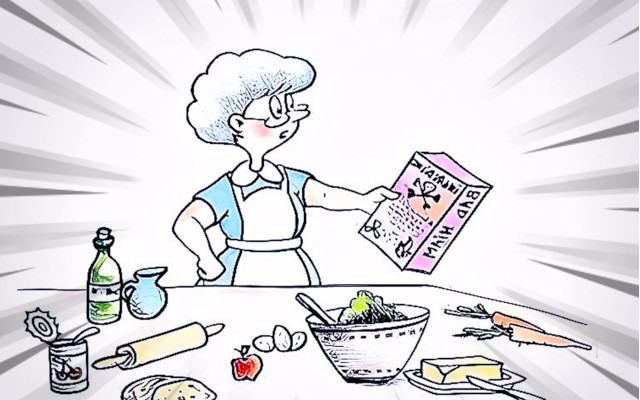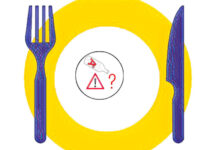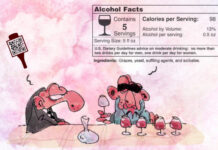Consumers declare themselves sensitive to the issue of food safety. Many seek information through labels and fear adulteration and counterfeiting. The main trends of public opinion on food safety issues are investigated by the METROFOOD-IT Consortium, an agri-food research infrastructure funded as part of the National Recovery and Resilience Plan (PNRR). (1)
Food safety and consumers, the questionnaire
The METROFOOD-IT Consortium circulated a questionnaire to visitors of Earth Day in Rome and online.
A total of 180 people took part in the survey, the majority of whom were women (66.8%) and largely in the 35-60 age group (70%).
Two out of ten are “very informed”
From the answers collected, it emerges that Italians feel knowledgeable about food safety issues:
- 18.8% of those interviewed define themselves as “very informed”,
- 59.4% consider themselves “fairly informed”.
Only a minority say they are little (20.6%) or not at all (1.2%) informed on this issue.
The role of labels
Labels are considered a key tool for food safety. When asked “How important do you think it is to read food labels in order to understand their healthiness and food safety aspects”, the participants confirmed the usefulness of the information reported on the packaging, describing it as a tool
– “extremely important” in the majority of cases (44.4%),
– “very important” for a further 42.2% of the sample.Food safety and consumers, the questionnaire
Distracted readers
Few consumers, however, claim to read food labels carefully. In detail,
– only 20.1% claim to spend a lot of time reading them carefully,
– 25.1% claim to spend “enough time”, paying close attention to the list of ingredients and the table of nutritional values,
– 27.4% of respondents claim to spend “enough” time.
Among those who say they barely take a quick look or rarely read labels, the reason given is lack of time and/or the persistence of established habits that are difficult to change.
Desire for the Nutri-Score
The consumers surveyed seem to desire the Nutri-Score on the label. When asked whether they consider it important “that the presence of high amounts of fat or sugar be more effectively indicated on the label”, they respond that they consider it
– “extremely important” (53.6%),
– “very important” (36.5%).
The Nutri-Score, defined by the scientific community as the best system to summarise this information on the front of the label, is still unavailable in Italy. (2) In the meantime, one can use the free Yuka app that not only provides an assessment of the food’s nutritional profile but also highlights the possible presence of undesirable additives. (3)
Adulteration and counterfeiting among the top fears
The fears most felt by consumers concern the risk of consuming adulterated or counterfeit food. With regard to these eventualities,
- 34.1% say they are “very concerned”,
- 33.5% are “extremely concerned”,
- 26.3% are “fairly concerned”.
The preventive measures taken against food adulteration and counterfeiting are simple: the vast majority of respondents say they are committed to buying fresh products or only brands they know well and trust.
Seasonal fruit and vegetables
The frequency with which seasonal fruit and vegetables are bought is a must in Italy.
72.2% of survey participants claim to buy seasonal produce every time they go shopping, while another 23.9 per cent claim to do so “whenever possible”.
The impact of ultra-processed foods
Ultra-processed foods, with ingredients that are not available in nature and/or undergo intensive processing, are recognised as harmful. (4) Overall, the sample declares itself to be attentive and aware:
- 43.6% claim to eat them occasionally,
- 33% claim not to eat them more than twice a week,
- 16.2% admit to eating them often (more than twice a week).
Marta Strinati
Notes
(1) The METROFOOD-IT Consortium (www.metrofood.it) is a research infrastructure funded under the National Recovery and Resilience Plan (PNRR). Its members are ENEA (National Agency for New Technologies, Energy and Sustainable Economic Development), the University of Naples Federico II, the University of Siena, the University of Parma, the University of Rome La Sapienza, the University of Bari Aldo Moro, the University of Molise and INRIM (National Institute for Metrological Research).
(2) Dario Dongo. NutriScore, the tools for calculating the nutritional profiles of food and beverages. GIFT (Great Italian Food Trade). 16.7.23
(3) Marta Strinati, Dario Dongo. Yuka, if you know it you spread it. The app conquers 2 million Italians in just one year. GIFT (Great Italian Food Trade). 30.9.21
(4) Marta Strinati. Identikit of ultra-processed foods, excess of critical nutrients and “cosmetic” additives. GIFT (Great Italian Food Trade). 2.9.23
Professional journalist since January 1995, he has worked for newspapers (Il Messaggero, Paese Sera, La Stampa) and periodicals (NumeroUno, Il Salvagente). She is the author of journalistic surveys on food, she has published the book "Reading labels to know what we eat".








